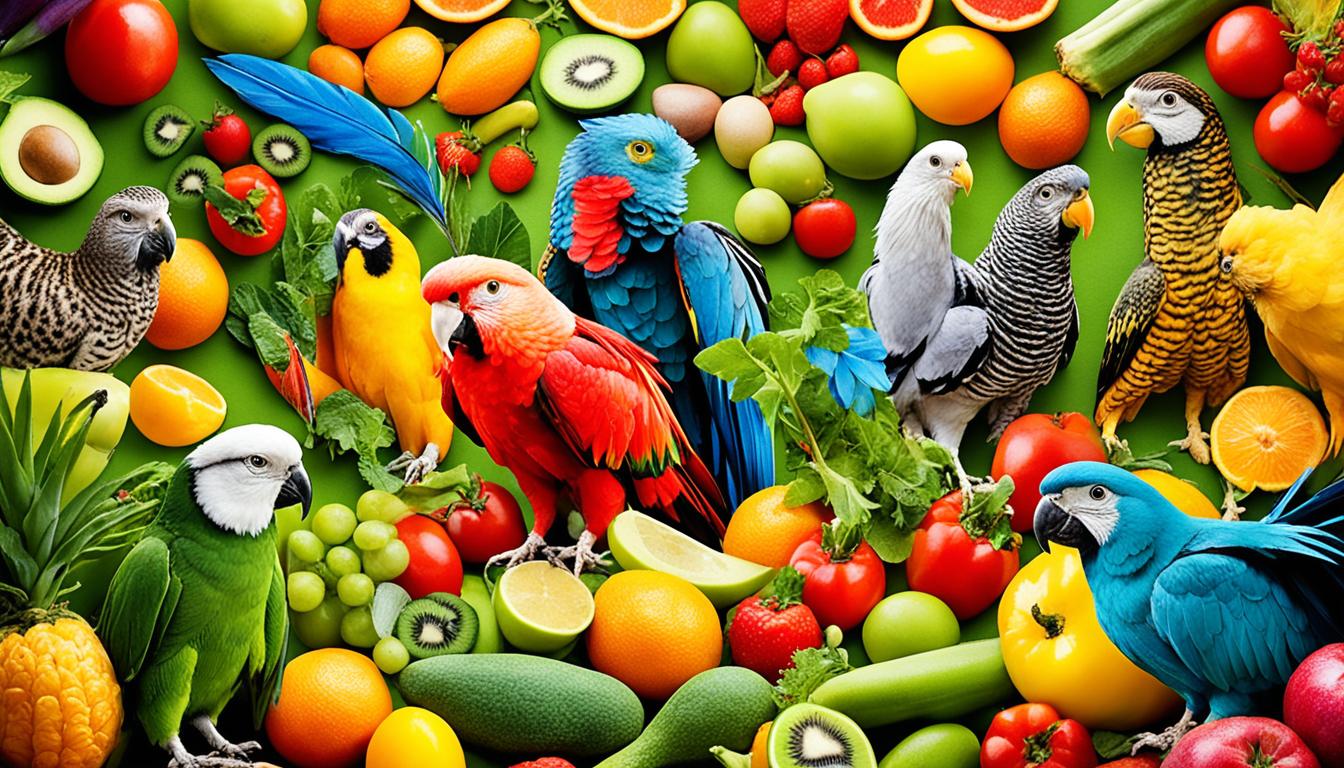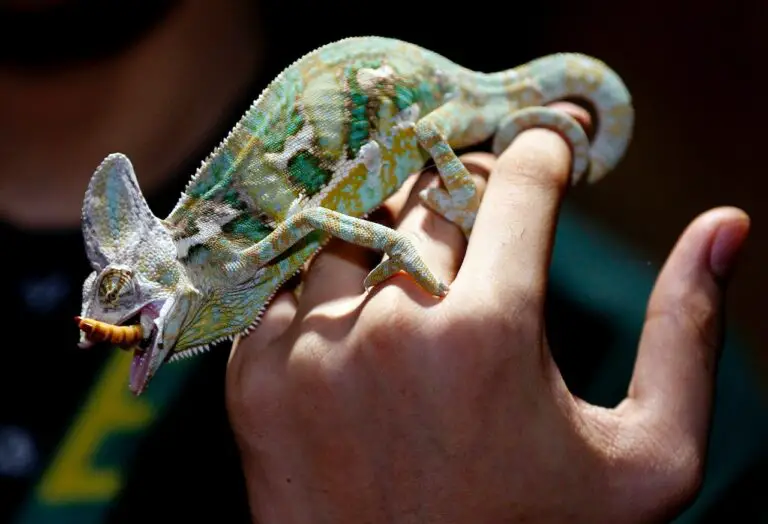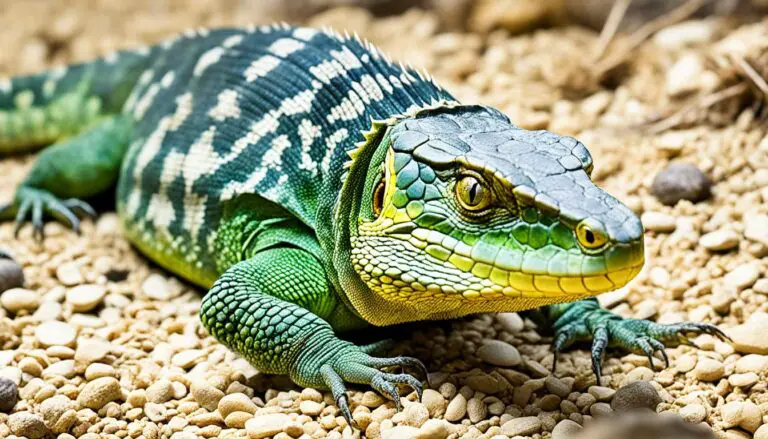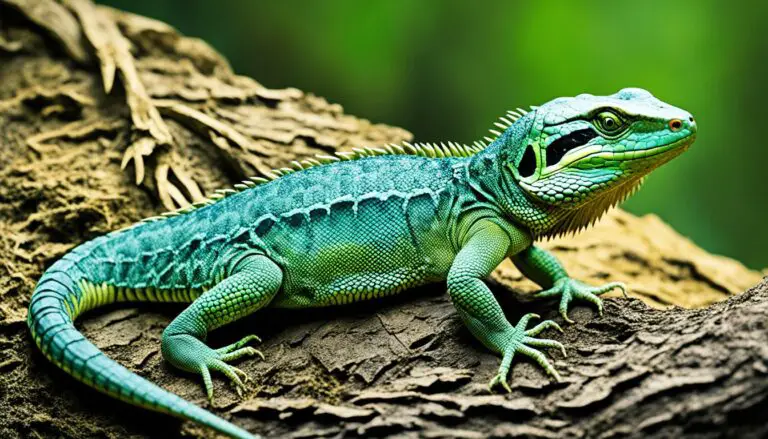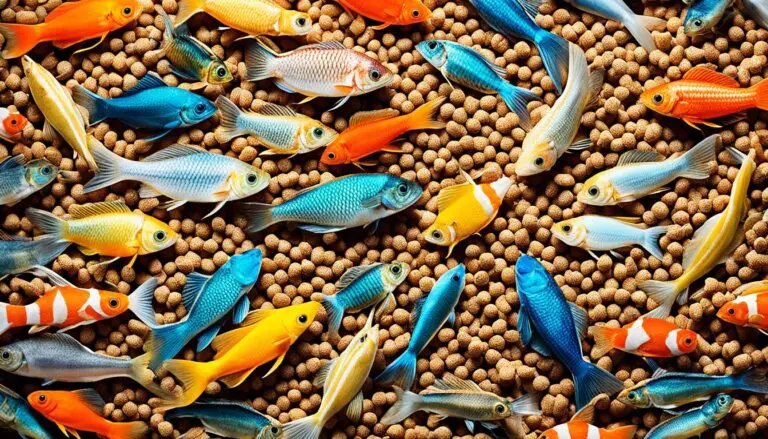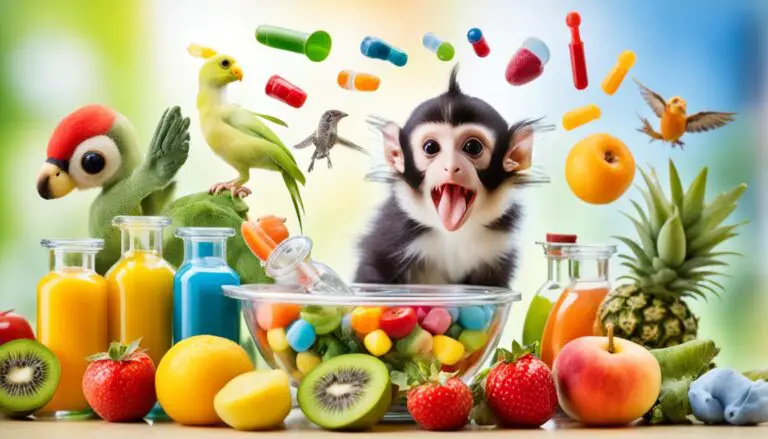Optimal Diet for Egg-Laying Exotic Pets
Did you know that providing the right food for egg-laying exotic animals is key to their health? These amazing pets need a special diet to lay eggs well and stay healthy. Let’s look at what these animals need and how to give it to them.
Key Takeaways:
- Egg-laying and gravid exotic animals have specific dietary needs for reproductive health.
- A well-balanced diet with the right balance of protein, fat, vitamins, and minerals is essential.
- Calcium is crucial for strong eggshells and successful egg formation.
- Proper nutrition can prevent and manage reproductive problems, such as chronic egg-laying and egg binding.
- Consulting with an exotic pet specialist is recommended for optimal care and support.
Nutritional Requirements for Egg-Laying Pets
Egg-laying pets, like birds and reptiles, need special diets. These support their health and egg production. A balanced and unique diet is key for healthy pets and good egg quality.
They need food that’s just right in protein, fat, vitamins, and minerals. Their diet must also have plenty of calcium. This helps make sure their eggs have strong, healthy shells.
Designing a diet for these pets means looking at their species and needs. Animals vary in their food likes and nutritional needs. If you consult a vet or a nutrition expert, they can help you create a plan just for them.
Key Nutrients for Egg-Laying Pets
A pet’s diet for good egg health must include:
- Protein: This is key for egg growth and development. It provides what eggs need to form properly.
- Fat: Fat gives energy for making eggs. It helps with using vitamins that dissolve in fat.
- Vitamins and minerals: Special vitamins and minerals play big roles in egg making and health.
- Calcium: For tough eggshells, they need enough calcium. Too little can mean weak shells that break easily.
A diet that meets egg-layers’ needs boosts their health. It helps them make eggs well. This makes for happier, healthier pets.

Feeding Gravid Reptiles
Gravid reptiles, those carrying eggs, need special food to stay healthy and help their eggs grow. They should eat a lot of calcium and other key nutrients. A good diet is very important for the eggs to develop well and hatch.
For these reptiles, getting enough calcium is critical. It helps make strong eggshells. Without calcium, their eggs could be weak. You should feed them dark leafy greens, use calcium supplements, and give them insects high in calcium.
Besides calcium, gravid reptiles need vitamins and minerals. They should eat a mix of proteins, fruits, and veggies. This ensures they get all the nutrients they need. You can also use special supplements to help.
Remember, the right diet might change depending on the kind of reptile. It’s important to research what your specific reptile needs to eat. This will help keep them healthy.
Staying hydrated is very important for gravid reptiles. Dehydration can harm the eggs and the reptile. You can help them stay hydrated by providing a water dish or by misting the area where they live.
Feeding Guidelines for Gravid Reptiles:
- Offer calcium-rich foods like dark leafy greens, calcium supplements, and calcium-rich feeder insects.
- Incorporate a mix of protein sources, fruits, and vegetables for a balanced nutrient intake.
- Consider using vitamin and mineral supplements to ensure they receive all essential nutrients.
- Provide access to fresh, clean water for proper hydration.
Support for Exotic Animal Reproductive Health
Reproductive health is key for exotic pets’ well-being. Giving them the right nutrition is critical. It helps improve egg production and makes breeding more likely to succeed. Good nutrition is vital for the breeding health of exotic animals. It ensures their offspring will be strong and healthy.

Supplementing Gravid Animals for Optimal Reproductive Health
To help exotic animals reproduce well, they need a balanced, nutritious diet. Gravid animals, or those expecting, should get extra nutrients. This meets their higher nutrition needs, boosting egg production and their overall health.
“Proper nutrition is the foundation of reproductive success in exotic pets. It is crucial to provide a diet that meets the specific needs of gravid animals to ensure both their health and the success of breeding efforts.”
The Importance of Exotic Pet Health
Exotic pets need special health care. The right nutrition is crucial. It prevents health problems and supports their reproductive health. A varied, balanced diet is key to their health and offspring success. Owners should focus on health and nutrition for their pets’ well-being.
Supplements for Exotic Animal Reproductive Health
Supplements are also important for exotic pets’ reproductive health. They give extra vital nutrients not found enough in their food. For example, calcium supplements help with strong eggshells. Always ask a vet for the best supplements for your pet.
| Supplement | Purpose | Recommended Dosage |
|---|---|---|
| Calcium | Supports eggshell formation | 1.5-2 times the recommended daily intake |
| Vitamin D3 | Aids in calcium absorption | Consult with a veterinarian for dosage |
| Omega-3 fatty acids | Supports overall reproductive health | Consult with a veterinarian for dosage |
Remember, only give supplements with your vet’s advice. Too much or wrong supplementation can harm your pet.
Dietary Tips for Egg-Laying Ducks
Ducks need the right food, especially when they lay eggs. A balanced diet keeps them healthy and helps them lay more eggs. You should include duck feed or flock raiser pellets in their meals.
Duck feed is full of nutrients, like calcium. This helps with egg production and makes sure the shells are strong. Always get advice from a vet or nutrition expert to pick the best feed for your ducks.
Adding fresh greens and veggies is good for ducks too. Try spinach, lettuce, peas, and kale. It gives them more nutrients and makes them happier.
Don’t give too much bread to your ducks. While they love it, bread is not good for them in big amounts. It can cause health problems.
Always give ducks clean water. They need it to drink, bath, and keep their feathers clean. Health and happiness for ducks start with fresh water.
By feeding your ducks well, you keep them healthy and ready to lay eggs. Follow these tips for happy egg-laying ducks.

Key Points:
- Provide a balanced diet for egg-laying ducks
- Include specially formulated duck feed or flock raiser pellets
- Fresh greens and vegetables can be beneficial additions
- Avoid overfeeding treats, such as bread
- Ensure clean and fresh water is always available
Expert Tip:
“Ducks thrive on a diet that meets their specific nutritional needs. Specially formulated duck feed provides essential nutrients, including calcium, to support strong eggshell development. Be mindful of treats and always prioritize a balanced diet for optimal health.” – Dr. Jane Wilson, Avian Nutritionist
| Duck Feed | Nutrients | Purpose |
|---|---|---|
| Duck Starter Feed | Protein, vitamins, minerals | Supports growth and development of ducklings |
| Duck Layer Feed | Protein, calcium, vitamins | Promotes egg production and strong eggshells |
| Flock Raiser Pellets | Protein, vitamins, minerals | Meets the nutritional needs of ducks at different life stages |
Chronic Egg-Laying and Egg Binding
Two common issues for pet birds and reptiles are chronic egg-laying and egg binding. Chronic egg-laying means they lay eggs too often, putting a strain on their bodies and health. Egg binding is when they can’t lay an egg, which is very dangerous if not dealt with quickly.
These problems have many causes, like not getting the right nutrients or not having the right place to lay eggs. Getting the right care and environment is key to stop or treat these issues.
Animals that lay eggs need certain foods to stay healthy. They need calcium, protein, and vitamins for their eggs to form correctly. If they don’t get all they need, they may lay too many eggs or have trouble laying.
It’s also crucial to make their space feel like a natural nest. This means the right bedding, temperature, and light. These things help keep their egg-laying regular and healthy.
If a bird or reptile lays eggs too often or can’t lay one at all, get help fast. A vet who knows about exotic animals can figure out what’s wrong and how to help. They might need extra calcium, more water, or even surgery to fix the problem.
Key Points:
- Chronic egg-laying and egg binding are common in pet birds and reptiles.
- Issues like not enough nutrients, wrong environment, or hormone problems can lead to these issues.
- Making sure they get proper food and live in a good place can help prevent these problems.
- A vet might need to step in if signs of egg-laying issues show up in a pet.

Preventing Egg-Binding in Pet Birds and Reptiles
It’s vital to prevent egg-binding in pet birds and reptiles for their health. Owners can lower the risk of this dangerous issue. They need to take certain steps to keep their pets healthy:
Provide a Well-Balanced Diet
Feeding your pet a healthy diet is key. It must have the right amount of nutrients. Ensure they get enough calcium and vitamin D3.
These are critical for their eggs and laying process. The right diet helps prevent egg-binding.
Create the Right Environment
The environment affects when pets breed. For birds, watch the light. Don’t let them have too much. It makes them think it’s always breeding season and they lay too many eggs.
Reptiles need the right temperature to stay healthy. Make sure their home is warm enough. This helps keep their breeding cycle normal.
Avoid Encouraging Mating Behavior
Don’t encourage birds and reptiles to mate. Giving them nest-building materials can make them want to breed. This leads to too many eggs. It’s best to avoid this to prevent egg-binding.
“Taking proactive measures to prevent egg-binding and reproductive problems in pet birds and reptiles is essential for their well-being.” – Dr. Smith, Avian Specialist
By following these steps and providing good care, owners can avoid egg-binding. This keeps their pets’ reproductive health in check.
Treatment Options for Egg-Binding
The way we treat egg-binding in exotic pets that lay eggs depends on each pet’s situation. This means we look at what’s causing the issue and how bad it is. We can use both medicine and surgery to help the animal feel better.
Treatment Options:
- If the problem isn’t too bad, we might just keep the pet comfortable and wait for the egg to come out. This involves making sure the pet drinks enough and has plenty of fresh water. Giving extra calcium can help make the eggshell softer. Also, extra vitamin D can help the pet’s body use calcium better for egg-laying.
- In more serious cases, we might need to try medical procedures to help the egg come out. This can include giving the pet drugs to make it lay the egg. Sometimes, gently massaging the pet’s belly or soaking it in warm water can also help. This relaxes the body and can make laying the egg easier.
- When the above steps don’t work, surgery might be the only option to take out the egg. A vet who knows about treating strange pets will perform the surgery. Surgery is usually done only when other methods don’t work or if the animal’s life is at risk.
It’s key to talk to a vet who knows a lot about strange pets. They can help decide the best treatment for your egg-bound pet. Getting quick help from a vet is very important to prevent any problems from egg-binding.
“Holistic and personalized care are vital when treating egg-binding in egg-laying exotic pets. The goal is to provide immediate relief to the animal while ensuring its overall well-being. Whether it’s through supportive measures or surgical interventions, a comprehensive treatment approach should be tailored to each individual case.” – Dr. Emily Thompson, Avian and Reptile Specialist
| Treatment Option | Key Features |
|---|---|
| Supportive Care | – Adequate hydration – Calcium supplementation – Vitamin D supplementation |
| Medical Interventions | – Medications to stimulate contractions – Gentle massage or warm soaking |
| Surgical Interventions | – Egg removal under anesthesia |
Conclusion
In conclusion, taking care of the diet of egg-laying and pregnant exotic pets is vital. This care supports their health and well-being. Owners should know what these animals need to eat to lay good eggs and avoid health issues.
A balanced diet is key. They need enough protein, fats, vitamins, and minerals. Eggs need strong shells, so giving them enough calcium is very important.
Owners should also visit the vet and talk to experts in exotic animals. These specialists can help with the right food, supplements, and living conditions. This way, the animals can be at their best for laying eggs and caring for their young.
By focusing on what these animals eat and getting help from experts, owners can do a lot. They can ensure their exotic pets are happy and healthy. Plus, they can support the pets in reproducing and caring for their babies.
FAQ
What are the nutritional requirements for egg-laying pets?
What dietary needs do gravid reptiles have?
How can I support the reproductive health of my exotic pet?
What should I feed my egg-laying ducks?
What are chronic egg-laying and egg binding?
How can I prevent egg-binding in my pet birds and reptiles?
What are the treatment options for egg-binding?
How important is optimal nutrition for egg-laying and gravid exotic pets?
Source Links
- https://www.purinamills.com/chicken-feed/education/detail/what-do-ducks-eat-tips-and-best-practices-for-feeding-backyard-ducks
- https://www.pethealthnetwork.com/all-pet-health/bird-health-care/egg-binding-birds-and-reptiles
- https://www.unusualpetvets.com.au/chronic-egg-laying-birds/
Peter Stones is the founder of Exotic Pets Place, the leading online resource for exotic pet care information.
With over 10 years of hands-on exotic pet ownership experience, he is deeply passionate about sharing his expertise to help others properly care for their unusual pets.
When he's not writing extensively researched articles or connecting with fellow exotic pet enthusiasts worldwide, you can find Peter at home tending to his own beloved menagerie of exotic animals.

